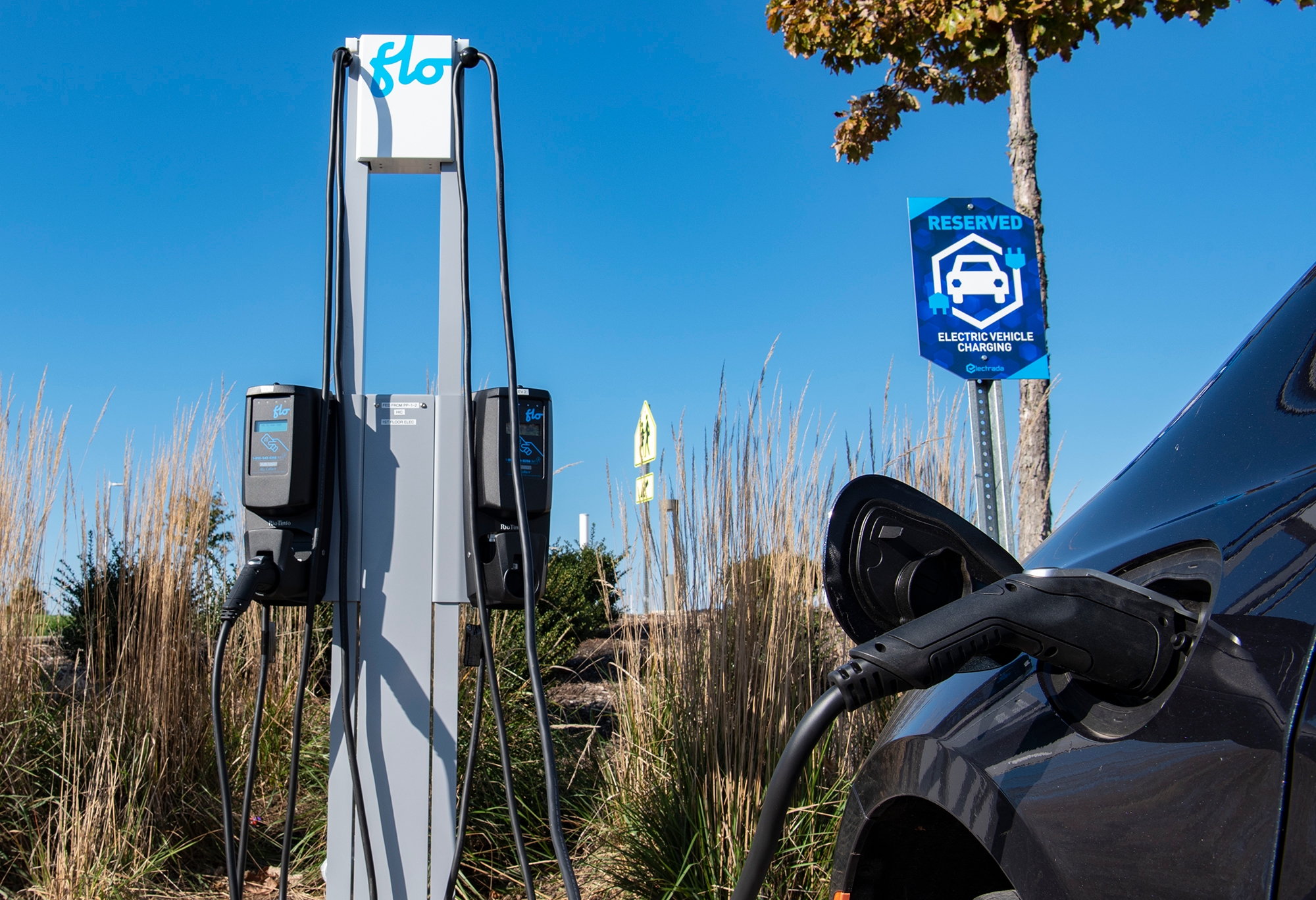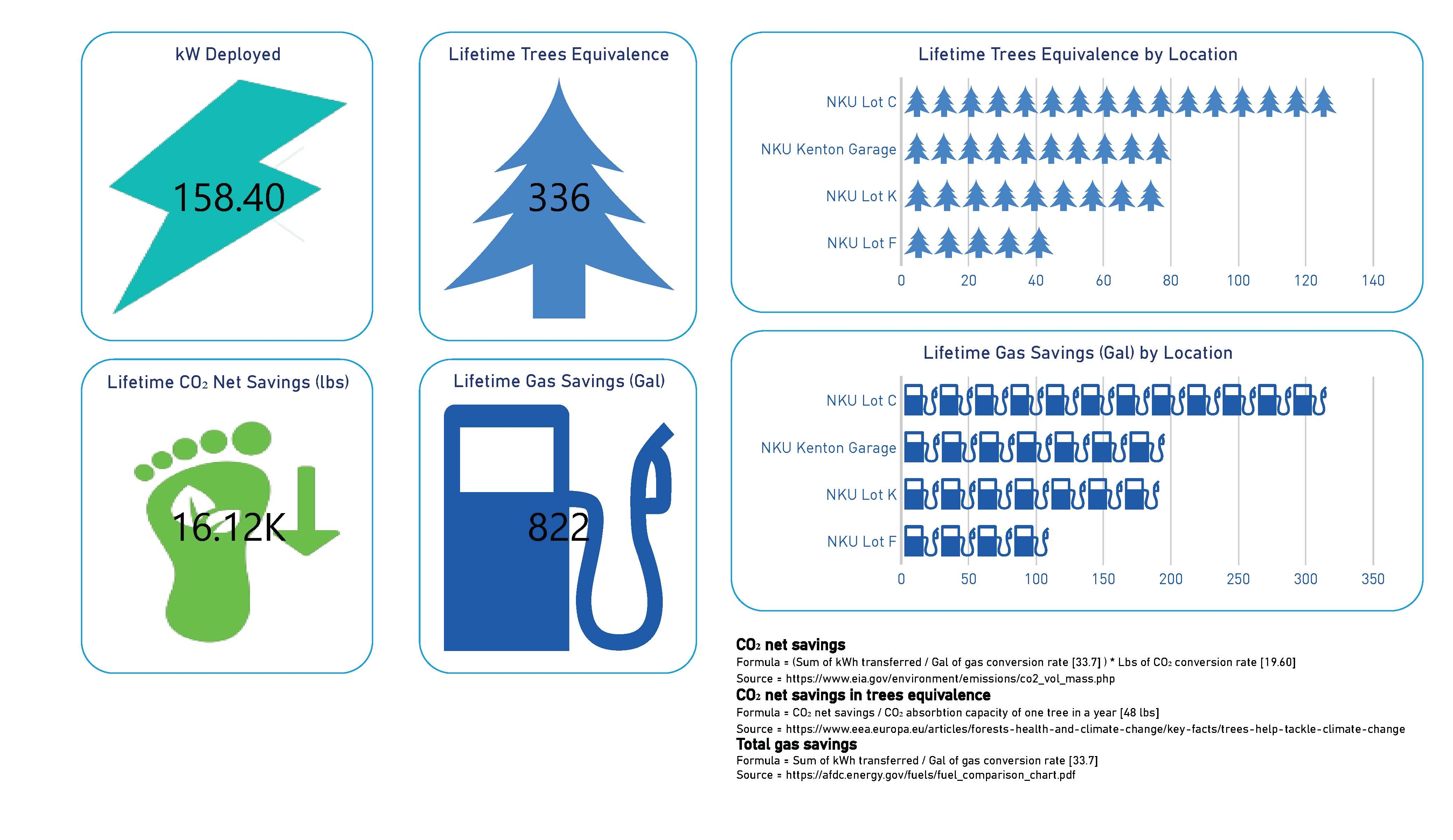What is alternative transportation?
Alternative transportation refers to commuting in other ways than driving alone. This can include biking, walking, carpooling, scootering and taking public transportation.
Why is alternative transportation important?
Alternative transportation is important for many reasons. Aside from releasing less carbon dioxide into the atmosphere, by choosing alternative transportation you are able to reduce commuting costs and waste less time in traffic, all while reducing stress and improving your health. Low or no emission transportation, such as electric vehicles, also help in reducing emissions and improving overall health through better air quality.
At NKU, approximately one-third of total emissions comes from single occupancy vehicles commuting to and from campus. That's a staggering amount! To help us reduce our carbon emissions from commuting, consider choosing one of the great alternative transportation or low emission methods listed below:

Electric Vehicles & Plug-in Hybrid Vehicles
Plug-In/Electric Vehicles are both environmentally friendly and cost-effective. Electric Vehicles (EVs) do not produce tailpipe pollutants and run more quietly than other cars. Additionally, Electric charging stations have the potential to use energy from renewable energy resources instead of fossil fuels, which decreases carbon emisions. EVs are cheaper to run than gas-powered vehicles and tend to require less maintenance, making this a cost-effective alternative. Additionally, you might be able to receive federal rebates for purchasing an EV.
NKU offers fifteen EV charging stations on campus. Two electric charging stations are located in Lot F, one station is in Lot C, and four stations are in Lot K: these are for use by any faculty, staff and student with a valid NKU parking permit. You may park at any of these stations and charge your car regardless of what type of parking pass you have, as long as it is valid for the current year. There are also eight additional stations on the lower level of Kenton Garage that are open for anyone to use, including the general public (no parking pass required, garage rates still apply).
Download Electrada's Instructions for information on how to use the "Flo" charging stations on campus.


1. Sing up for a FLO user account: account.flo.com
2. Download the free FLO EV Charging app from the App Store or Google Play. (You may also use existing apps, such as Chargepoint, to access the Flo stations.)
3. Add funds using a credit card
4. Request a FLO membership card (if desired)
5. Find a Public Station on the Flo Map or;
6. Find charger identifier (indicated on the front of the charger) by typing it into the Search field in the app
7. Add it to Favorites and use the same charger by choosing it from the Favorites at every charge



